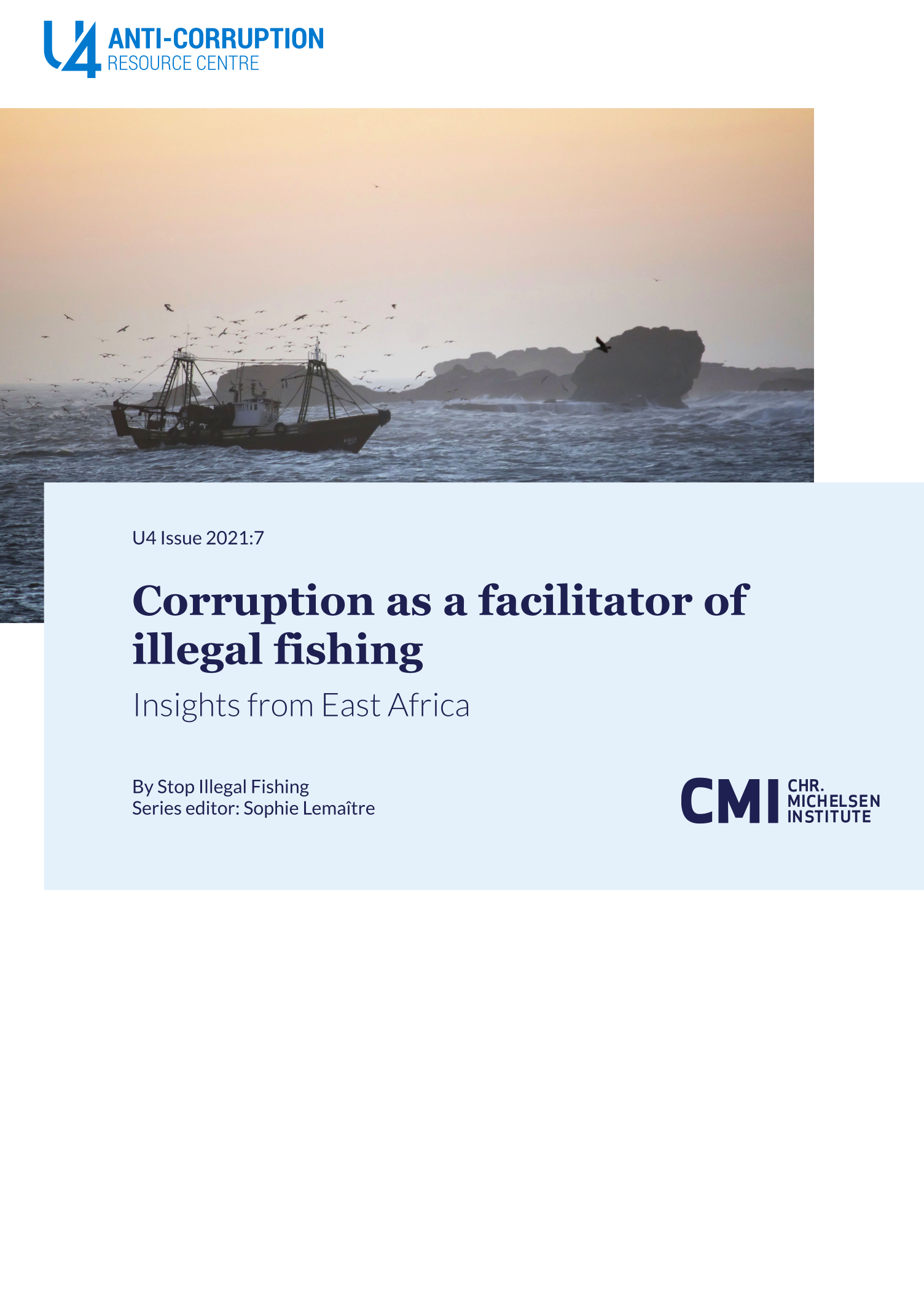Main points
- Corrupt networks headed by political or senior civil servant ‘kingpins’ facilitate illegal vessel registration, allocation of fishing licences, and access to ports and port services.
- Alleged corruption incidents potentially represent transnational organised crime, involving multiple countries and a range of different public bodies, such as maritime, port, and fishery authorities.
- Lack of interagency cooperation and information exchange can result in unclear institutional responsibilities, creating gaps in jurisdictions that can easily be exploited by corrupt operators.
- Fishery agents, who provide services for vessel owners, are active in orchestrating corrupt practices across the region. They link up corrupt players, offering them protection, and pay bribes and arrange kickbacks.
- Fish that is caught illegally – often facilitated by corruption – is likely to be whitewashed into the legitimate value chain if the illegal activity is not detected before the catch is transhipped or landed.
- Approaches that may disrupt corruption in fisheries include: strengthening on-the-ground anti-corruption capacity; fostering national interagency cooperation and increasing international cooperation; improving oversight of fishery agents; and supporting regional monitoring, control and surveillance centres and task forces.
